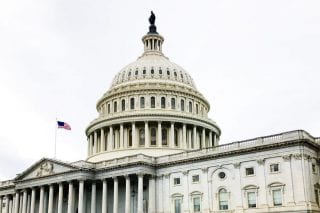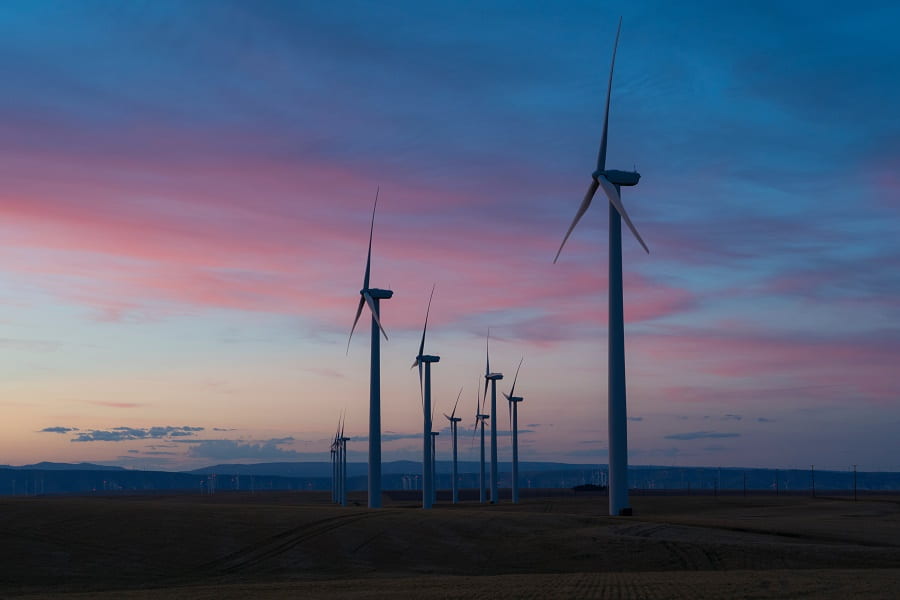Climate Change is a big problem.
It is so big, in fact, that individual action—while necessary—is not enough to stop the dire predictions of a warmer world from becoming reality.
According to a recent NYT article,
“The United States… has contributed more than any other country to the atmospheric carbon dioxide that is scorching the planet…. the United States, with just over 4 percent of the world’s population, is responsible for almost a third of the excess carbon dioxide that is heating the planet. “
Fixing this is going to take more than just re-thinking the amount of meat we consume or the types of transportation we choose. The alarming fact of the matter is that no matter how hard an individual American tries – even to the point of adopting a lifestyle of homelessness – we still generate at minimum Carbon Footprint of 8.5 tons per person. The reason is simple.
As explained by the Obama administration “the Federal Government is the single largest consumer of energy in the Nation” and our Federal Government – including the military, transportation infrastructure, etc – is still very entrenched in its use of fossil fuels.
In order for our nation to address climate change and combat its own massive carbon footprint, we must implement policies that will enforce sustainable behavior. Yet this type of legislation has been continually opposed.
The argument against implementing Climate Change Policy, or more specifically some form of a price on carbon, has remained two-fold. Firstly, it argues that pricing carbon would negativity disrupt our economy. Secondly, it argues that once fossil fuels become less economical – because of limited supply – our market system will naturally down-regulate its use.
But these arguments hinge on a major factual error: the assumption that fossil fuel use is currently profitable.
The fossil fuel industry is what economists call a “Market Failure”
Simply put, the price of fossil fuels does not accurately represent the cost of their production.
While the price does reflect the cost of drilling and refining the fuels, it does not account for the cost of negative externalities. A negative externality is defined as “a cost that is suffered by a third party as a result of an economic transaction.” For fossil fuels this includes everything from the negative impacts of habitat destruction in the acquiring of raw materials to the costs of cleaning up from natural disasters worsened by climate change. Since GHG emissions from fossil fuels are the major contributor to climate change, it could be argued that all damage due to climate change is a negative externality of the fossil fuel industry.
As one climate scientist put it, “The fossil fuel industry is the only industry that isn’t required to clean up its own waste.”
If the fight against climate change is to gain any true ground, it is imperative for the cost of GHG emisions to be accurately represented in our economic and market sectors. As long as these fuels are marketed at artificially cheap prices, they will continue to appear to be the most economical option – further entrenching our society in its dangerous dependence on the fuels that have us currently releasing 14.7 trillion pounds of CO2e annually.

A big part of the solution to this “market failure” is widely agreed to be found in Carbon Pricing.
Carbon Pricing is exactly what is sounds like—a way to put a price on CO2e emissions. There are two major approaches to Carbon Pricing: Carbon Tax, like CCL’s Fee and Dividend idea and Carbon Trading.
Whichever of these policies you favor, it is imperative to encourage our government, local and federal, to employ carbon pricing policies and reduce emissions of GHGs.
As we are taught in our Sustainability Courses here at the UofA, “We are all in this together”. To truly fight for a sustainable future we must use the rights given to us within this country and make our voices heard. We must advocate and vote for sustainable policy and environmentally-minded legislators. Individual action itself is not enough, but individuals coming together behind one cause can spark massive change.
To learn more about a Carbon Tax, click here.
To learn more about Carbon Trading, click here.

